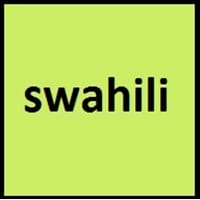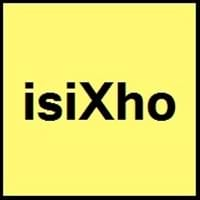Swahili and Xhosa
Countries
African Union, Democratic Republic of the Congo, East African Community, Kenya
South Africa
National Language
Burundi, Kenya, Madagascar, Malawi, Mozambique, South Sudan, Tanzania
South Africa
Second Language
Not spoken in any of the countries
Lesotho, South Africa
Speaking Continents
Africa
Africa
Minority Language
Not spoken in any of the countries
Botswana, Lesotho
Regulated By
Chama cha Kiswahili cha Taifa (Kenya)
Not Available
Interesting Facts
- Swahili language has borrowed many words from Arabic language.
- The oldest written scripts in swahili language were found in 18th century.
- Xhosa has 15 click sounds, borrowed from the khoi-khoi and san languages of the South Africa.
- The same sequence of consonants and vowels can have different meaning when said with different tones, so Xhosa is tonal.
Similar To
Burundi, Rwanda, Malawi Languages
Zulu, Swazi, and Ndebele
Derived From
Arabic Language
Khoi-Khoi and San Languages
Alphabets in
Swahili-Alphabets.jpg#200
Xhosa-Alphabets.jpg#200
Writing Direction
Not Available
Not Available
Thank You
Asante
Ndiyabulela
How Are You?
Habari gani?
Unjani
Good Night
Usiku mwema
Ulale kakuhle
Good Evening
Habari za jioni
Ubusuku obuhle
Good Afternoon
nzuri Alasiri
Uben' emva kwemini entle
Good Morning
Habari za asubuhi
Molo
Bye
bye
Uhambe/Usale kakuhle
I Love You
nakupenda
Ndiyakuthanda
Dialect 1
Kiunguja
Gcaleka
Where They Speak
Zanzibar island
South Africa
Where They Speak
Dar es Salaam
South Africa
Where They Speak
Kilwa
South Africa
Speaking Population
Not Available
Second Language Speakers
Not Available
Native Name
Not Available
isiXhosa
Alternative Names
Kisuaheli, Kiswahili
“Cauzuh” (pej.), Isixhosa, Koosa, Xosa
French Name
swahili
xhosa
German Name
Swahili
Xhosa-Sprache
Pronunciation
Not Available
Not Available
Ethnicity
Swahili people or Waswahili
amaXhosa, amaBhaca
Origin
6th century
16th Century
Language Family
Niger-Congo Family
Niger-Congo Family
Subgroup
Benue-Congo
Benue-Congo
Early Forms
No early forms
No early forms
Standard Forms
Swahili
isiXhosa
Signed Forms
Not Available
Signed Xhosa
Scope
Individual, Macrolanguage
Individual
ISO 639 6
Not Available
Not Available
Glottocode
swah1254
xhos1239
Linguasphere
99-AUS-m
99-AUT-fa
Language Type
Living
Living
Language Linguistic Typology
Not Available
Subject-Verb-Object
Language Morphological Typology
Not Available
Not Available
All Swahili and Xhosa Dialects
Most languages have dialects where each dialect differ from other dialect with respect to grammar and vocabulary. Here you will get to know all Swahili and Xhosa dialects. Various dialects of Swahili and Xhosa language differ in their pronunciations and words. Dialects of Swahili are spoken in different Swahili Speaking Countries whereas Xhosa Dialects are spoken in different Xhosa speaking countries. Also the number of people speaking Swahili vs Xhosa Dialects varies from few thousands to many millions. Some of the Swahili dialects include: Kiunguja, Kimrima. Xhosa dialects include: Gcaleka , Thembu. Also learn about dialects in South American Languages and North American Languages.
Swahili and Xhosa Speaking population
Swahili and Xhosa speaking population is one of the factors based on which Swahili and Xhosa languages can be compared. The total count of Swahili and Xhosa Speaking population in percentage is also given. The percentage of people speaking Swahili language is Not Available whereas the percentage of people speaking Xhosa language is 0.11 %. When we compare the speaking population of any two languages we get to know which of two languages is more popular. Find more details about how many people speak Swahili and Xhosa on Swahili vs Xhosa where you will get native speakers, speaking population in percentage and native names.
Swahili and Xhosa Language Codes
Swahili and Xhosa language codes are used in those applications where using language names are tedious. Swahili and Xhosa Language Codes include all the international language codes, glottocodes and linguasphere.





